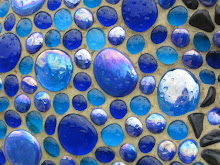People that know me well realize I'm generally computer-averse, so the irony of yours truly doing a blog isn't lost on anyone. I am often at a loss when it comes to surfing like the "57 channels and nothing on" phenomenon. As a result, I've become a daily Fark.com user. I can stop anytime I want. Really.
Last week there was a link to a Cracked piece on all the well-intentioned efforts to minimize our negative impact on the world. Here's a link:
http://www.cracked.com/article_17084_5-ways-people-are-trying-save-world-that-dont-work.html
I'll run them down here, with a bit of their logic. I'm just reporting it folks, I haven't verified much but the links are there if you're so inclined. I'll put my comments, constructive or not, in italics.
5.) Organically grown food isn't healthier for the planet or for you. The addition of chemicals such as pesticides and fertilizers has increased food production significantly. Cancer rates have actually decreased because more people are able to afford more fruits and veggies. When there isn't enough organic food available locally, it's trucked in which means more fuel and emissions. And even though organic produce is only 1% of the food supply, it's responsible for 8% of the E.coli outbreaks.
I've rationalized buying organic milk, because of the chemicals concentrated in animal products. When pregnant, I also did organic butter and cheese. There's no way I could afford to purchase only organic. I do make an effort to buy local, in season.
4.)Vaccinations are to be avoided, to reduce risk of autism and SIDS.
The original study for this one has been thoroughly debunked, even by the researchers themselves. The preservative used in vaccines is not a dangerous form of mercury, and hasn't been used since 2001. Autism rates continue to climb. The incidence of SIDS has actually decreased 40% as vaccinations have increased.
This one has always bugged me, because the premise is that vaccinations are part of the social contract to protect against illness outbreaks that are definitely risky, vs. potential risks that have no hard science to support them.
3.) Recycling is a good way to preserve resources and protect the environment.
We recycle to use fewer resources and create less pollution, but it all depends if we count human labor as a resource. All those recycling trucks driving around create emissions, and the process of recycling is labor- and energy-intensive.
I think recycling alone isn't adequate, but buying goods made with recycled materials, minimally packaged is at least a step in the right direction. It also raises awareness and gives a concrete step, which is important.
2.)Antibacterial soaps help protect against illness and promote health.
All antibacterial agents are gradually building resistance and creating superbugs. The antibacterial agents contain chemicals that have potential effects on sex hormones. It's healthy to have some germs, to give the immune system a workout and create a stronger resistance. Studies have shown that using antibacterial soap doesn't work any better than regular handwashing with soap and hot water.
I've worked in healthcare settings and am all about the handwashing, but I can't believe that this is even in the "Save the World" list. That being said, have you noticed how few choices there are for liquid soap that isn't antibacterial?
1.)Purchasing carbon offsets is positive for the environment.
They are most useful to assuage guilt, and aren't monitored or regulated enough to actually be certain the company is actually reducing emissions as promised, or that they were going to reduce anyways.
This is one that makes me think environmental guilt is a bankable commodity more solid than anything in the stock market. I know the premise of this is meant to be good in the global citizen mindset, but it does smack of buying indulgences for transgressions committed.
A bit glib, but it is good to see the current mindset with a bit of a reality test. I'm a fan of not just doing something, but interventions that are actually effective. I'm also constantly frustrated by the ongoing criticism without any constructive suggestions or way to redress the imbalance. It's pretty easy to shoot down ideas and be destructive, but I wish it came with the responsibility to offer some creative ideas. Because we know it's all so much bad news and easy to get overwhelmed and give up. But there is something to be said for doing what you can, in small steps and good faith, if only to keep moving towards a goal. And being an ostrich is no longer an option - it's all available on the web in this blizzard of information (and oversharing) called the blogosphere.
Sunday, March 8, 2009
Subscribe to:
Post Comments (Atom)

No comments:
Post a Comment
I'd be interested in hearing your feedback and suggestions, provided they are constructive. Thanks.